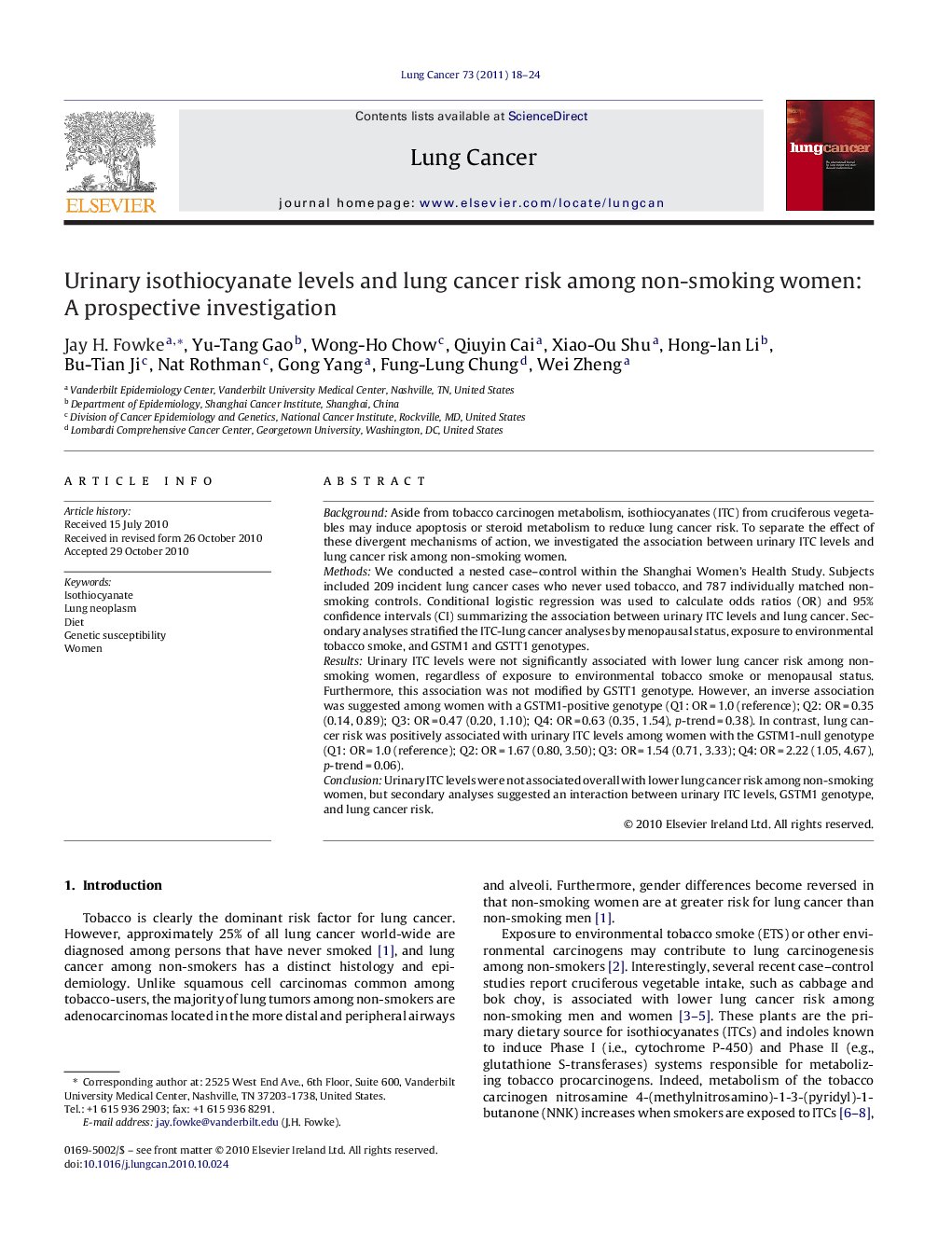| Article ID | Journal | Published Year | Pages | File Type |
|---|---|---|---|---|
| 2142024 | Lung Cancer | 2011 | 7 Pages |
BackgroundAside from tobacco carcinogen metabolism, isothiocyanates (ITC) from cruciferous vegetables may induce apoptosis or steroid metabolism to reduce lung cancer risk. To separate the effect of these divergent mechanisms of action, we investigated the association between urinary ITC levels and lung cancer risk among non-smoking women.MethodsWe conducted a nested case–control within the Shanghai Women's Health Study. Subjects included 209 incident lung cancer cases who never used tobacco, and 787 individually matched non-smoking controls. Conditional logistic regression was used to calculate odds ratios (OR) and 95% confidence intervals (CI) summarizing the association between urinary ITC levels and lung cancer. Secondary analyses stratified the ITC-lung cancer analyses by menopausal status, exposure to environmental tobacco smoke, and GSTM1 and GSTT1 genotypes.ResultsUrinary ITC levels were not significantly associated with lower lung cancer risk among non-smoking women, regardless of exposure to environmental tobacco smoke or menopausal status. Furthermore, this association was not modified by GSTT1 genotype. However, an inverse association was suggested among women with a GSTM1-positive genotype (Q1: OR = 1.0 (reference); Q2: OR = 0.35 (0.14, 0.89); Q3: OR = 0.47 (0.20, 1.10); Q4: OR = 0.63 (0.35, 1.54), p-trend = 0.38). In contrast, lung cancer risk was positively associated with urinary ITC levels among women with the GSTM1-null genotype (Q1: OR = 1.0 (reference); Q2: OR = 1.67 (0.80, 3.50); Q3: OR = 1.54 (0.71, 3.33); Q4: OR = 2.22 (1.05, 4.67), p-trend = 0.06).ConclusionUrinary ITC levels were not associated overall with lower lung cancer risk among non-smoking women, but secondary analyses suggested an interaction between urinary ITC levels, GSTM1 genotype, and lung cancer risk.
